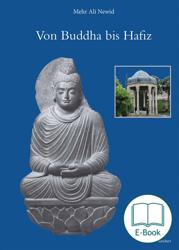In the first part of this work are described the religion and art of Buddhism as well as ancient and late medieval weapons. The second part consists of aspects of Iran's material culture, presented from historical and literary sources, especially Persian poetry.
Der indische Subkontinent und das persische Großreich weisen ethnisch gemeinsame Wurzeln auf und sind seit der Antike sprachlich, religiös und kulturell eng mit einander verbunden. In der Forschung wird die übergreifende indo-iranistische Perspektive aber nur selten eingenommen.
Der vorliegende Band spiegelt die Arbeit des Verfassers mit beiden Kulturkreisen wider. Er bietet ausgewählte Beiträge zum Buddhismus und zu weiteren Aspekten der indischen Kultur nach historischen und literarischen Quellenberichten sowie zu zahlreichen Themen aus dem iranischen Kulturkreis, insbesondere zur persischen Literatur und Dichtung.
Dr. Mehr Ali Newid, born December 15th 1950 studied classical archaeology, philology, Byzantine studies and art history at the Aristotle’s University in Thessaloniki/Greece. After completing his master's degree, he continued his studies at the LMU in Munich in the subjects of Indology and Iranian Studies and received his doctorate in the field of Buddhism.
He initially taught and researched at the Institute for Indology and Iranian Studies and was a research assistant at the State Museum of Ethnology in Munich and at the State Collections of Antiquities and Glyptothek in Munich. In 2010, he was a senior advisor to the Afghan government for culture and archeology and a visiting professor at the University of Kabul. In 2011/2012 he was a chair representative for Iranian Studies at the LMU Munich.
He is currently lecturing at the Institute of the Near and Middle East Studies. The focus of his work here is Iranian history and culture as well as Persian poetry and mysticism.


 Table of Contents
Table of Contents